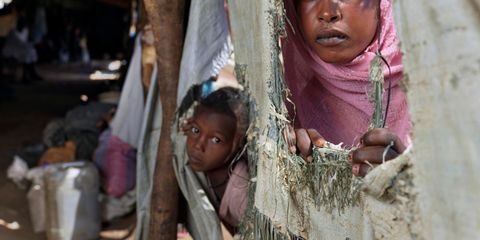Plan International South Sudan launched a new strategy
Five-year country strategy
Plan International South Sudan launched a new strategy in ongoing efforts to address the evolving contexts in the country, shifts in global funding and the resilience of its people.
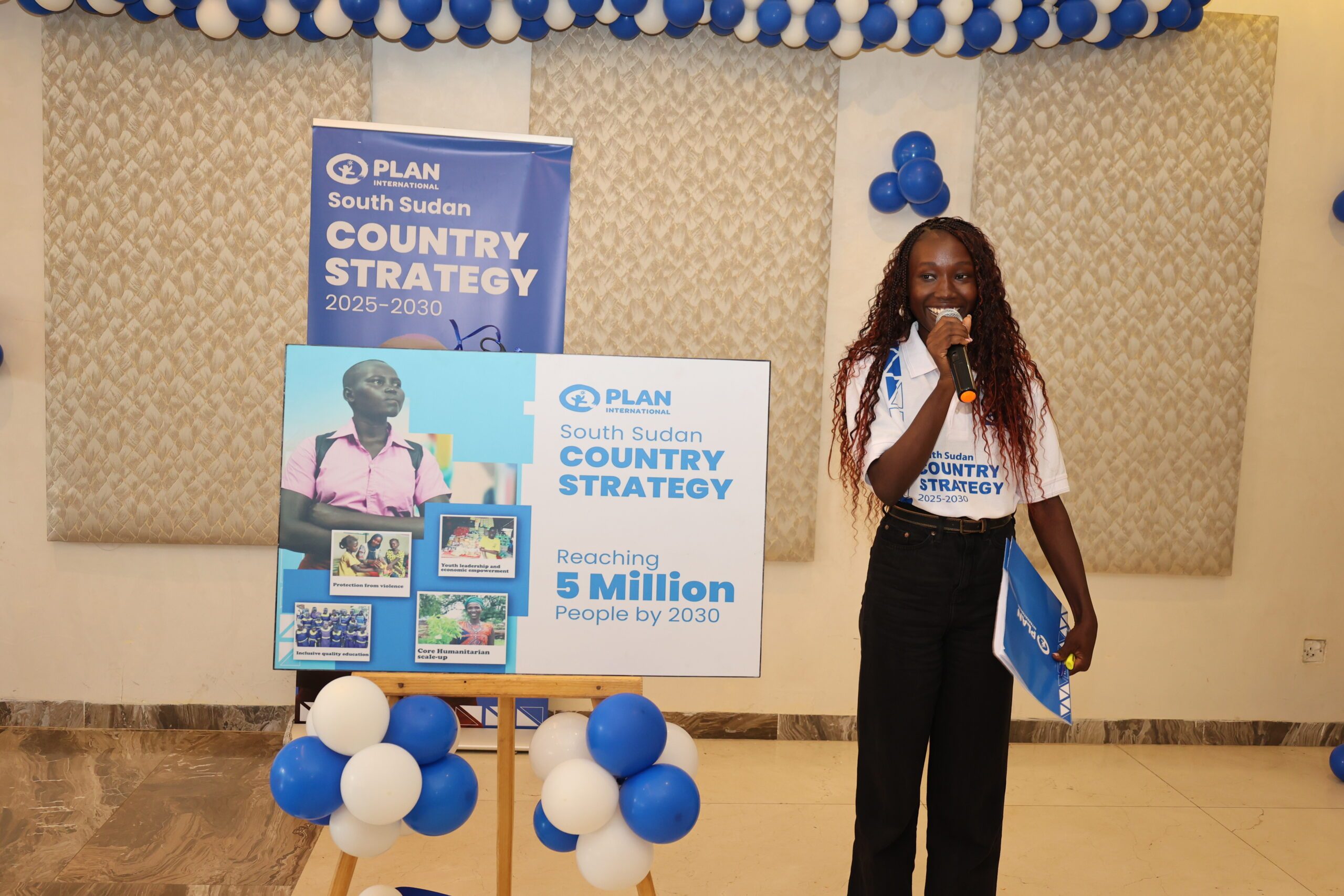
Diko Janet Chairperson of the Youth Advisory Panel moderates the country strategy launch event. ©Plan International South Sudan
The five-year country strategy (2025-2030) seeks to prioritise women, girls and children’s empowerment and aims to reach 5 million people including 2 million women, 1.6 million children and 1.4 million girls through education, protection from violence, youth leadership and economic empowerment and humanitarian scale up.
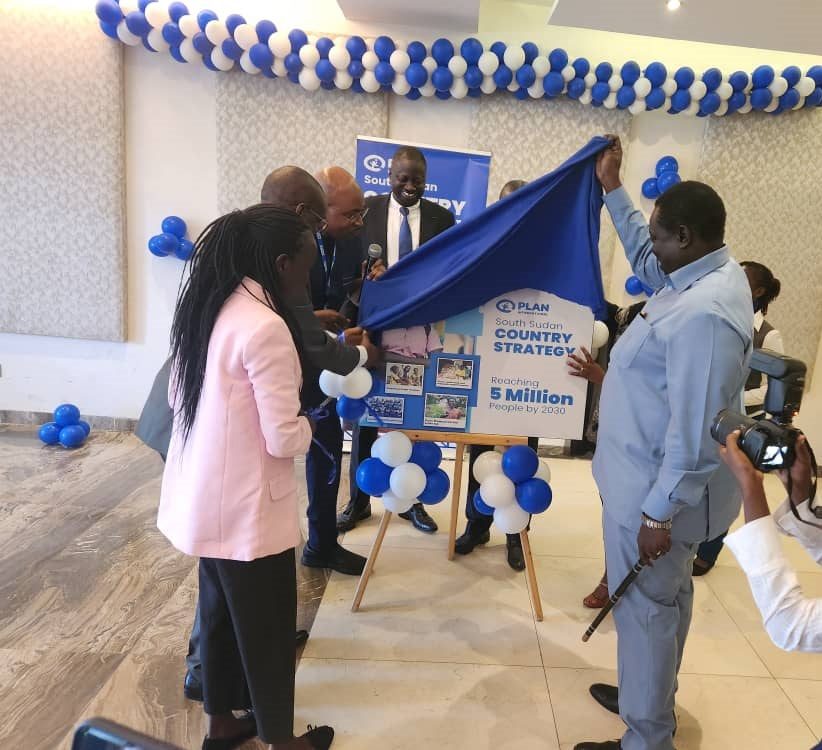
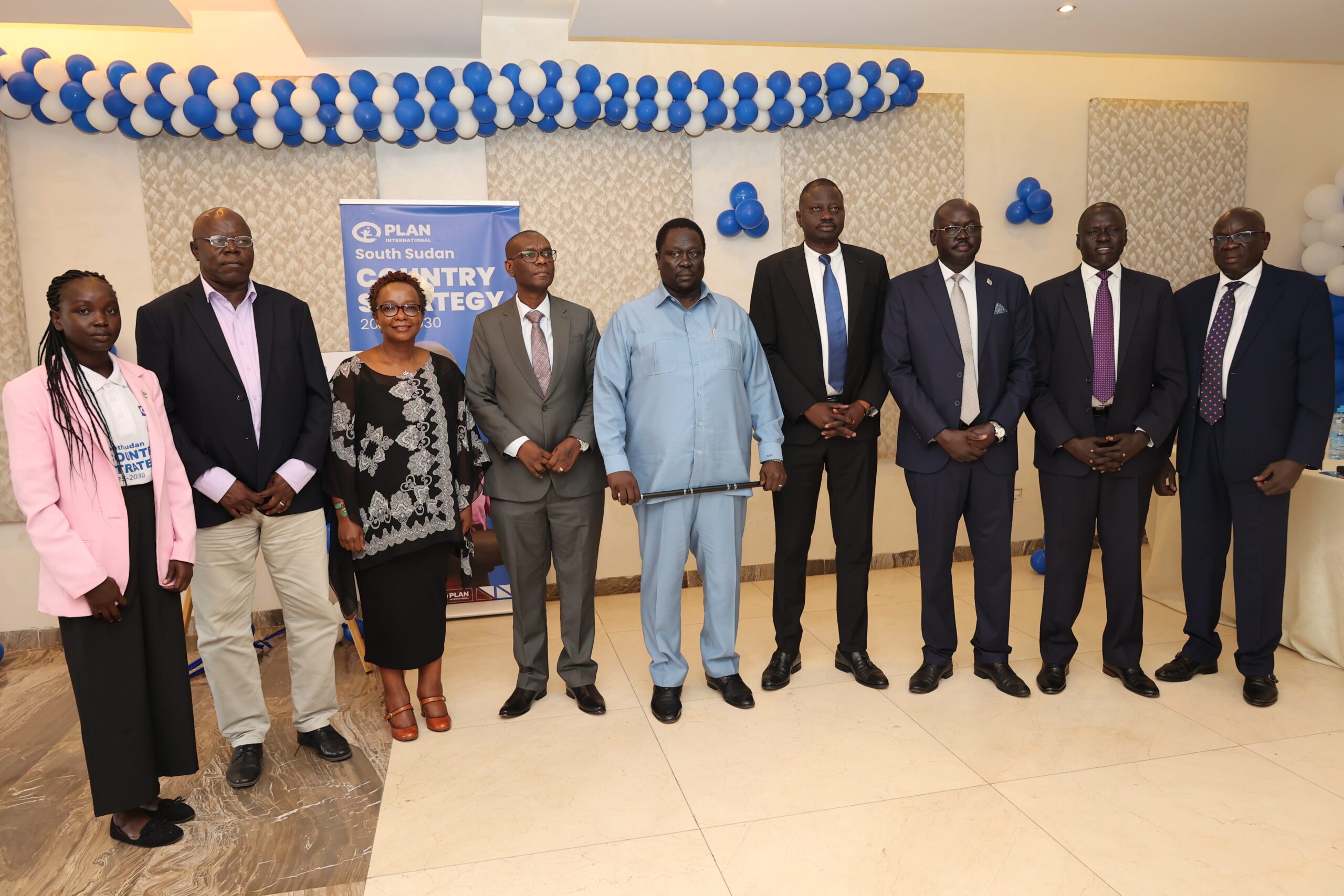
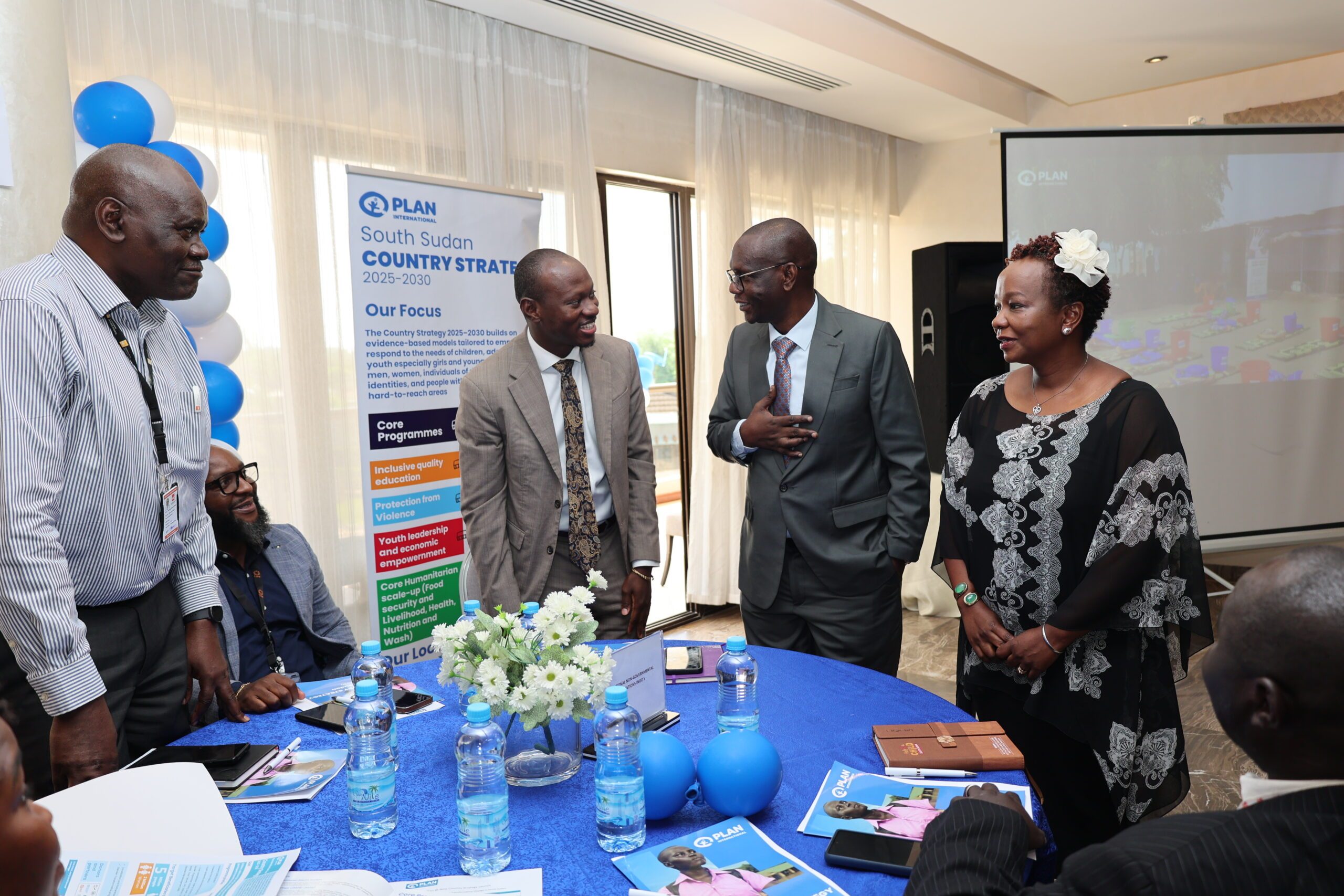
With the Minister of Agriculture and Food Security Hon. Hussein Abdelbagi as the chief guest, the high-level event to unveil the new country strategy brought together distinguished guests including senior officials from the different government line ministries, Relief and Rehabilitation Commission South Sudan, donors, key partners from diplomatic corps, UN Agencies, INGOs, NNGOs, youth groups and colleagues from Plan International MEESA Regional Office led by the Sub-Regional Director Angela Muriithi.
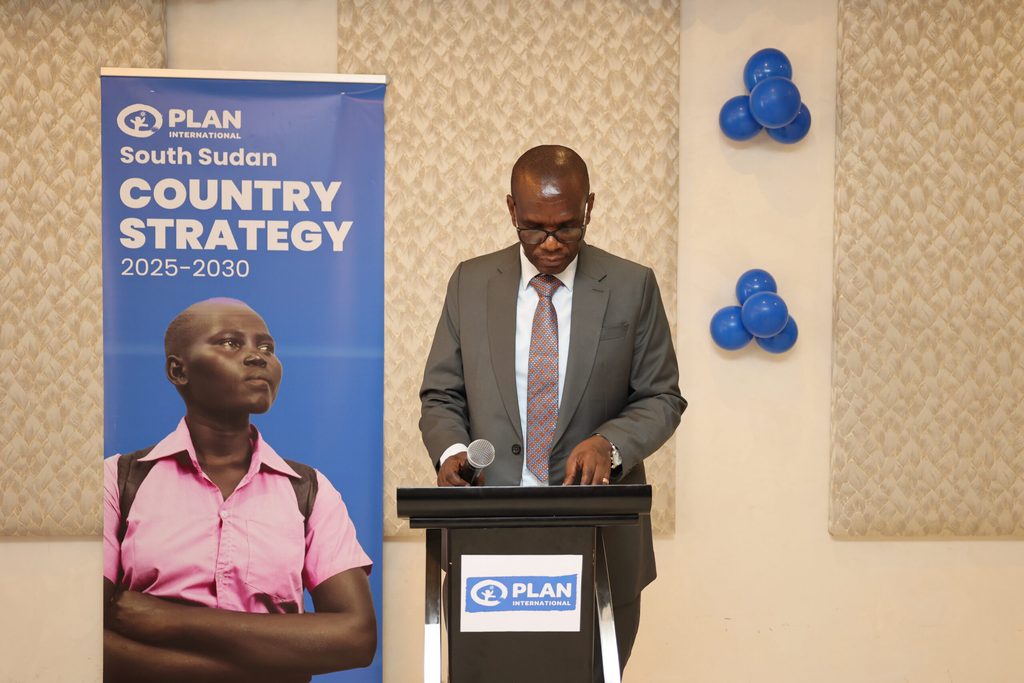
“We are currently facing unprecedented challenges including funding cuts, political and economic instability and a rapidly shifting global landscape. Despite this, our strategy is forward-looking, agile and centred on critical areas including quality education, protection, youth leadership, and economic empowerment, and humanitarian scale-up for building better future for South Sudan.” Said Paul Lusato, Country Director Plan International South Sudan.
Organisation ambitions
In what is the organisation’s most ambitious plan, 50% of this work will be channelled through local and national organisations through capacity building, co-creation and joint implementation in efforts to tap into the resilience of the South Sudanese communities and bridge humanitarian, development and peacebuilding efforts.
The country office will also be shifting from humanitarian-focused interventions toward resilience programming, centred on such key areas as education, protection from violence, youth leadership and economic empowerment.
“Amid regional conflicts and funding constraints, this strategy is designed to attract diverse funding streams, including commercial contracts, payment-for-results models, and locally raised resources. Cross-border programming will address ripple effects of crises like Sudan’s conflict, which has heavily impacted South Sudan.“
Angela W. Muriithi, Plan International Sub-Regional Director, Middle East, North Africa and the Horn. © Plan International South Sudan
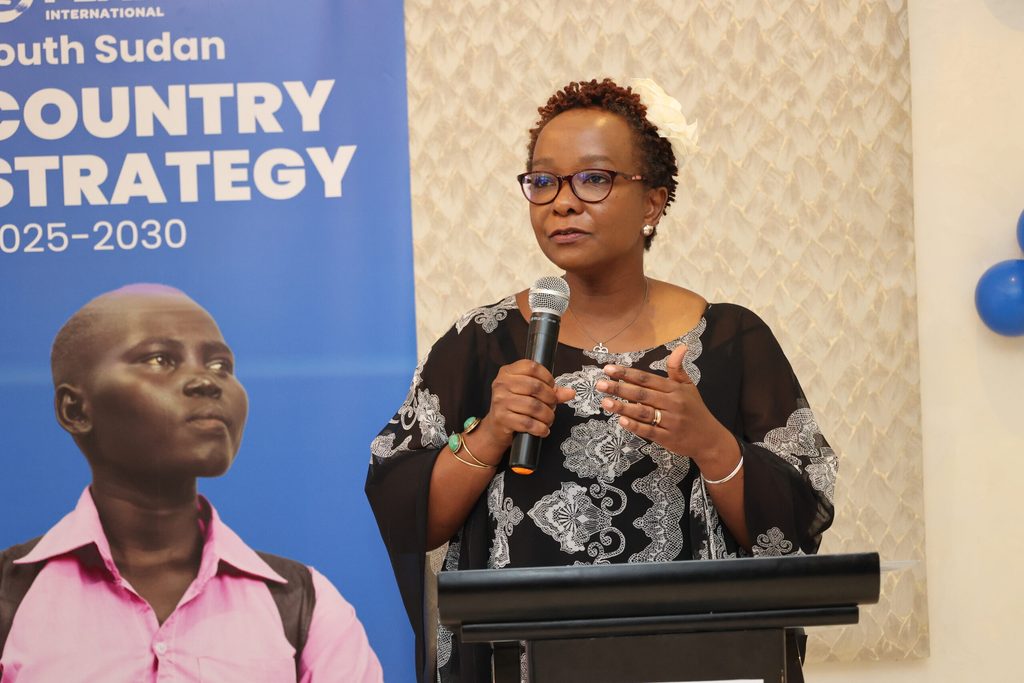
Since 2006, Plan International has worked in South Sudan, building strong partnerships with the government, bilateral and multilateral agencies, corporate donors, UN entities, civil society organisations, and local communities across humanitarian and development sectors.
Currently operating in 6 states (Central Equatoria, Eastern Equatoria, Lakes, Upper Nile, Unity, Jonglei) and the Greater Pibor Administrative Area, Plan International South Sudan plans to expand into Northern Bahr-el-Ghazal while strengthening partnerships to reach the most vulnerable people in need.
Categories: Education, Emergencies, Protection from violence, Youth empowerment

